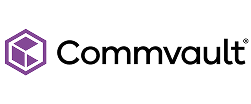
Zone & Co vs. the Rest: why NetSuite-Native wins every time



Trusted by finance teams at 4,000+ organizations
Zone & Co vs. the rest: Why NetSuite native wins every time
| Compare Features |

|
Bill.com | Tipalti | Salesforce Billing | Zuora |
|---|---|---|---|---|---|
|
Uses NetSuite’s relational data schema
For data and reporting that’s easy to audit
|
|
|
|
|
|
|
Inherits NetSuite’s built-in permissions
For a unified and secure workflow
|
|
|
|
|
|
|
Eliminates multiple logins and UIs
Since all Zone apps are inside of NetSuite’s walls
|
|
|
|
|
|
|
Built entirely on NetSuite’s SuiteCloud platform
With no external servers or security risks
|
|
Integrated | Integrated |
|
|
|
Certified “Built for NetSuite” solution
That extends NetSuite’s capability
|
|
Integrated | Integrated |
|
|
Built inside NetSuite—not just connected to it
One source of truth across billing, payables, and reporting
Real-time GL impact and auditability

Lower IT overhead and faster deployment
Data security via native NetSuite roles and permissions
Trusted by financial leaders
90% Increase in billing efficiency.

100% Accuracy and reliable data.

75% Faster bill turnaround and easier month- and year-end close.
Built for growth, proven at scale

Businesses trust NetSuite
To work smarter, adapt faster and grow stronger
Reduction
In resource costs
Average ROI
Within 3 years of implementation
Of the Forbes Cloud 100 List
Are NetSuite customers
See Your Finance Challenges Solved
Have questions? we’ve got answers!
What does “NetSuite native” actually mean?
NetSuite-native means the app was built on the same foundation as NetSuite itself. Native SuiteApps like Zone’s operate entirely inside your ERP – using its data model, workflows, roles and security without relying on external systems or syncs. You’re not bouncing between platforms or managing duplicate logic. Every action, approval and record lives in one place: NetSuite.
If your finance workflows already run in NetSuite, your tools should too. Use this checklist to evaluate if third-party integrations are holding you back →
How is a NetSuite-native SuiteApp different from an integration?
There are three types of SuiteApps you’ll find in the NetSuite ecosystem – native, integrated and hybrid. The differences come down to where the app is built, how it runs and how deeply it connects to NetSuite. Here’s a quick breakdown:
Native SuiteApps
- Built entirely on the SuiteCloud platform, native SuiteApps live 100% inside NetSuite.
- They inherit NetSuite’s roles, permissions, workflows and UI – which means everything stays under NetSuite’s security, upgrade and access framework.
- The entire solution is reviewed under the
Built for NetSuite (BFN) program.
If your team is trying to consolidate workflows and stay inside NetSuite, native is the only model that truly keeps data and logic where it belongs.
Integrated SuiteApps
- Integrated SuiteApps live outside of NetSuite and push data in through APIs, iPaaS tools or custom syncs.
- The core application logic and data live in a separate system.
- These often require separate logins, UIs and user management.
- Only the integration layer gets BFN certified – the core app logic and data remain external.
Hybrid SuiteApps
- Hybrid SuiteApps use a combination of native and external components.
- Some parts operate inside NetSuite, while others rely on services hosted elsewhere.
- BFN certification in this case applies only to the native portion – not the full solution.
If you’re evaluating SuiteApps for core finance processes – like billing, accounts payable, reconciliation, payroll or reporting – architecture matters. Native SuiteApps like Zone’s keeps workflows centralized and audit-ready. Integrated or hybrid options can add risk, especially during upgrades or audits.
Why does being native matter for finance teams?
Native matters to finance because it changes where your work happens – and how much trust you can put in the results. When a SuiteApp is native to NetSuite, it runs inside your ERP. That means billing, approvals, payroll, reporting and reconciliation all happen in one system. No exports, no middleware, no rechecking numbers from tool to tool.
For finance teams, that translates to fewer billing errors and faster rev rec, clean audit trails and faster AP close and streamlined payroll management – not fixing broken workflows.
Do NetSuite-native solutions limit flexibility?
NetSuite-native solutions don’t limit flexibility – they enhance it. Unlike third-party integrations that often rely on manual syncs and workarounds, NetSuite-native apps operate directly within the ERP. This means your financial data remains centralized, up-to-date and seamlessly connected across all workflows. As your business scales or pivots, your financial processes remain aligned and easily adaptable without the hassle of reconfiguration or bolted-on software.
Zone’s SuiteApps are designed specifically to extend NetSuite’s core capabilities without disrupting existing workflows. Whether you’re adding new billing models, automating AP approvals or scaling reconciliation processes, the embedded nature of these solutions ensures everything is managed in one place. If your finance team is struggling with disconnected tools and manual processes, a NetSuite-native solution might be the exact upgrade needed to support growth – not a limitation.
How does Zone compare to integration-based tools?
Isn’t integration “good enough” if everything connects?
Integration might seem "good enough" – until things break. Integration-based setups often rely on middleware, sync schedules and data mapping that can fail, lag or create version conflicts. Zone’s NetSuite-native solutions eliminate these risks by operating entirely within NetSuite, ensuring real-time data accuracy, seamless workflows and zero sync issues. When your finance stack is truly native, there’s no “almost right” – it’s always right.
Explore how seamless finance really feels inside NetSuite →




